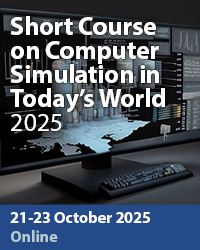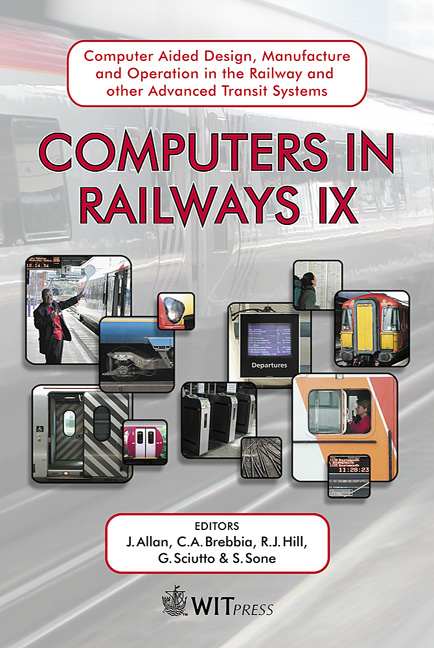Railway Conflict Detection And Resolution In The Korean Railway System
Price
Free (open access)
Transaction
Volume
74
Pages
10
Published
2004
Size
387 kb
Paper DOI
10.2495/CR040681
Copyright
WIT Press
Author(s)
S.M. Oh, S.H. Hong & I.C. Choi
Abstract
S. M. Oh1,2 1 2 1 2 Abstract In this paper, we propose a railway conflict detection and resolution system (RCDRS) for the Korean railway system. First, we review several studies related to RCDRSs. Second, we analyze traffic patterns of five major Korean National Railroad (KNR) lines. We use five measures to characterize each line: track capacity, transportation mode, meet and overtake numbers, traffic intensity, and traffic diversity. Finally, we present an RCDRS schematic and RCDR model for the Korean railway system. We focus, in particular, on a two-phase RCDR model that coordinates all interconnected lines in the global network. Keywords: conflict resolution, traffic control, real-time scheduling. 1 Introduction A railway conflict detection and resolution problem (RCDRP) is to find a meetpass- overtake plan that resolves a disrupted train schedule within relatively short response time. It is an NP-hard problem [1, 2]. An important factor in the RCDRP is the number of conflicts that can be
Keywords





